Mike Kosares: What if you'd been waiting in line at Northern Rock?
By Michael Kosares
Centennial Precious Metals, Denver
www.USAGold.com
Sunday, September 23, 2007
Who is at risk in Alan Greenspan's "Age of Turbulence? (And we should not doubt for a minute that we do indeed live in an age of unprecedented turbulence.)
Is it the Federal Reserve?
No, the Fed suffers no ramifications for any of its actions or pronouncements.
Is it the commercial banks?
No, the Fed will bail them out no matter what it takes all the while proclaiming that it would never do such a thing.
Is it the hedge funds?
No, they will be bailed out by their counterparties, the major commercial banks, which will be bailed out by the Fed.
Is it the investor in the hedge funds?
No, he will be bailed out by the hedge funds when they reposition themselves to meet the criteria of the commercial banks (after they get their much-needed credit-line extension).
Is it the holder of the shaky mortgage drawn into this hapless affair by signing on the dotted line at a sucker rate of interest?
No, he will be bailed out through one government machination or another by the politicians who know that their cushy jobs in the Beltway depend on the good will of all those who believe that their fate hangs perilouslously close to that of their less fortunate brethren.
So who is truly at risk?
It is those of you who have worked hard, saved, invested judiciously, and find yourselves in a position where you don't really have to ask anything of anyone. In other words, the individual who has been able to build up a little in the way of ASSETS.
Yes, you, my friends -- for if they cannot get it from you, in the form of taxes and inflation, they cannot get it at all!
What is the way out? The way around it?
Buy the metal (or in the case of those who already own gold, own more and subtract your fate from the designs of the plotters and planners -- the wide swath of those looking for someone to pay the huge bill that is coming due.
How are investors going to react when they discover that there are not many truly safe havens?
What if you were one of those people waiting in line at at one of the branches of Northern Rock in Britain?
First, investing in any kind of currency-based asset -- like stocks, bonds, bank deposits, and money markets -- is all basically the same thing. Your stock adviser might tell you that it would be a good idea in these perilous times to diversify between stocks and bonds and then to ladder the risk in each category.
What your stock adviser isn't going to tell you is that since all these assets are denominated in the local currency, you aren't really diversified at all.
One of the first questions that popped into my mind when the photographs of the queues outside Northern Rock branches were published was: What are these people going to do once they do get their money out of Northern Rock? Deposit it in another risky bank or money-market fund? Buy British gilts? Take it across borders to a different but equally precarious banking system? Buy U.S. Treasuries? Or believe the CNBC-style hype and put it into the stock market?
Ownership of any of these things represents only a lateral transfer, not a diversification, from the problem represented so tellingly by Northern Rock.
Gold's opponents realized early that the only real escape was hard, yellow metal and that's why they tried to knock down the price and cut gold off as an avenue of escape. They now seem to understand that it isn't going to work. Not even all the propaganda in the world can diminish the fundamental truth that gold is an asset that is not simultaneously someone else's liability. That is what makes gold a sound alternative in the context of recent events. All the other assets mentioned above rely on someone else's performance or ability to pay. As Alan Greenspan put it long ago, gold is the only primary asset that does not require endorsement.
(I am not advocating 100-percent conversion of your assets to physical gold, only a sensible proportion to hedge against monetary crises, bank runs, etc.)
So the next question is: What happens if a good segment of the investing public comes to the realization about gold at about the same time?
I really don't want to think about it. Do we on the gold side of the fence really want gold to become a mainstream alternative? If you can truthfully answer "yes" to that question, you are one of the lucky few who has positioned himself for what appears to be coming down the road. From this perspective it is more a negative than a positive that gold was featured favorably in The New York Times on Sunday. That's quite a statement from someone such as myself who has spent the past decade -- since 1997 when USAGold.com went up on the Internet -- taking on the mainstream press and its negative attitude toward gold.
My, how things change. I would much rather see gold sit in the background and act as a repository for those who truly understand its uses than to see the mainstream press admit those uses and promote them to the public.
Second, and this has more to do with future market effects than it does with a course of action for individual investors, what are the chances that the Fed's attempt to lower interest rates is going to be overcome by Treasury paper sellers trying to escape the falling dollar?
When Greenspan's attempt to raise interest rates collided with the interests of the export-driven economies to find a place for their dollar reserves, interest rates did not rise to the degree the Fed had hoped. This is what Alan Greenspan referred to as "the conundrum." Now we shall see if Ben Bernanke will find himself in the opposite position. (Bernanke's conundrum?)
We saw signs of what might happen along these lines earlier in the year when bond values fell mysteriously just as Congress was attempting to pressure China over yuan policy. Some thought China was selling Treasuries as a warning. In any case interest rates began to move up on their own once again, contrary to Fed policy.
Strangely, the Fed could find itself operating under an odd set of circumstances. By proving its ability to govern interest rates and monetary policy, it could very well destroy itself and the dollar -- the proverbial dragon eating its tail.
For several years now I have been talking about the Fed losing control of interest rates and monetary policy. This isn't just interesting (or boring) economic discussion. This goes to the heart of the current monetary order and how policy-makers are going to deal with the array of problems affecting all of us, not just the banks or the traders in New York.
If the Fed no longer has control of monetary policy, what good is it? What is its purpose? What is the economic function of the Federal Reserve? What is its social purpose?
Over the weekend the Financial Times published an editorial that addressed the problem. "A decline in the dollar," the FT said, "would be welcome if it was slow, but if foreign investors anticipate inflation and start to dump some of their $12,000 billion in U.S. debt, it could turn into a rout. In the worst case the Fed could lose control of monetary policy."
Obviously, the one function it will sustain is the one for which it was created: lender of last resort. Perhaps that will be enough, but it also could mean an inflationary spiral unlike anything we have ever seen as the Fed attempts to gun the monetary engines to compensate for foreign-based Treasury sales or lack of interest in financing the still-growing U.S. debt.
The response in most places will be the local central bank's gunning of the engines in its own right. Already there is a battle in Europe between the politicians and central bankers over fiscal responsibility and looseness or tightness in monetary policy.
It is interesting that Greenspan concentrates now on this same question of fiscal madness at the federal government. I look forward to reading his book to see if he has anything to offer in the way of solutions. For years I have advocated resurrecting the concept of a U.S. budget required by law to be balanced. Most state government operate quite effectively under that burden. Why can't the federal government? I also like Greenspan's response when asked by Newsweek magazine if he had a favorite in the presidential campaign: "Is one of the choices leaving the office open?"
At a time when America is preoccupied with the possibility of an economic breakdown, not one presidential candidate has been able to make anything close to an intelligent comment. That speaks volumes.
First comes perspective. Then proportion. Then peace of mind.
---
Michael Kosares is president and founder of Centennial Precious Metals in Denver and host of its Internet bulletin board, the USAGold.com Forum.
* * *
Centennial Precious Metals, Denver
www.USAGold.com
Sunday, September 23, 2007
Who is at risk in Alan Greenspan's "Age of Turbulence? (And we should not doubt for a minute that we do indeed live in an age of unprecedented turbulence.)
Is it the Federal Reserve?
No, the Fed suffers no ramifications for any of its actions or pronouncements.
Is it the commercial banks?
No, the Fed will bail them out no matter what it takes all the while proclaiming that it would never do such a thing.
Is it the hedge funds?
No, they will be bailed out by their counterparties, the major commercial banks, which will be bailed out by the Fed.
Is it the investor in the hedge funds?
No, he will be bailed out by the hedge funds when they reposition themselves to meet the criteria of the commercial banks (after they get their much-needed credit-line extension).
Is it the holder of the shaky mortgage drawn into this hapless affair by signing on the dotted line at a sucker rate of interest?
No, he will be bailed out through one government machination or another by the politicians who know that their cushy jobs in the Beltway depend on the good will of all those who believe that their fate hangs perilouslously close to that of their less fortunate brethren.
So who is truly at risk?
It is those of you who have worked hard, saved, invested judiciously, and find yourselves in a position where you don't really have to ask anything of anyone. In other words, the individual who has been able to build up a little in the way of ASSETS.
Yes, you, my friends -- for if they cannot get it from you, in the form of taxes and inflation, they cannot get it at all!
What is the way out? The way around it?
Buy the metal (or in the case of those who already own gold, own more and subtract your fate from the designs of the plotters and planners -- the wide swath of those looking for someone to pay the huge bill that is coming due.
How are investors going to react when they discover that there are not many truly safe havens?
What if you were one of those people waiting in line at at one of the branches of Northern Rock in Britain?
First, investing in any kind of currency-based asset -- like stocks, bonds, bank deposits, and money markets -- is all basically the same thing. Your stock adviser might tell you that it would be a good idea in these perilous times to diversify between stocks and bonds and then to ladder the risk in each category.
What your stock adviser isn't going to tell you is that since all these assets are denominated in the local currency, you aren't really diversified at all.
One of the first questions that popped into my mind when the photographs of the queues outside Northern Rock branches were published was: What are these people going to do once they do get their money out of Northern Rock? Deposit it in another risky bank or money-market fund? Buy British gilts? Take it across borders to a different but equally precarious banking system? Buy U.S. Treasuries? Or believe the CNBC-style hype and put it into the stock market?
Ownership of any of these things represents only a lateral transfer, not a diversification, from the problem represented so tellingly by Northern Rock.
Gold's opponents realized early that the only real escape was hard, yellow metal and that's why they tried to knock down the price and cut gold off as an avenue of escape. They now seem to understand that it isn't going to work. Not even all the propaganda in the world can diminish the fundamental truth that gold is an asset that is not simultaneously someone else's liability. That is what makes gold a sound alternative in the context of recent events. All the other assets mentioned above rely on someone else's performance or ability to pay. As Alan Greenspan put it long ago, gold is the only primary asset that does not require endorsement.
(I am not advocating 100-percent conversion of your assets to physical gold, only a sensible proportion to hedge against monetary crises, bank runs, etc.)
So the next question is: What happens if a good segment of the investing public comes to the realization about gold at about the same time?
I really don't want to think about it. Do we on the gold side of the fence really want gold to become a mainstream alternative? If you can truthfully answer "yes" to that question, you are one of the lucky few who has positioned himself for what appears to be coming down the road. From this perspective it is more a negative than a positive that gold was featured favorably in The New York Times on Sunday. That's quite a statement from someone such as myself who has spent the past decade -- since 1997 when USAGold.com went up on the Internet -- taking on the mainstream press and its negative attitude toward gold.
My, how things change. I would much rather see gold sit in the background and act as a repository for those who truly understand its uses than to see the mainstream press admit those uses and promote them to the public.
Second, and this has more to do with future market effects than it does with a course of action for individual investors, what are the chances that the Fed's attempt to lower interest rates is going to be overcome by Treasury paper sellers trying to escape the falling dollar?
When Greenspan's attempt to raise interest rates collided with the interests of the export-driven economies to find a place for their dollar reserves, interest rates did not rise to the degree the Fed had hoped. This is what Alan Greenspan referred to as "the conundrum." Now we shall see if Ben Bernanke will find himself in the opposite position. (Bernanke's conundrum?)
We saw signs of what might happen along these lines earlier in the year when bond values fell mysteriously just as Congress was attempting to pressure China over yuan policy. Some thought China was selling Treasuries as a warning. In any case interest rates began to move up on their own once again, contrary to Fed policy.
Strangely, the Fed could find itself operating under an odd set of circumstances. By proving its ability to govern interest rates and monetary policy, it could very well destroy itself and the dollar -- the proverbial dragon eating its tail.
For several years now I have been talking about the Fed losing control of interest rates and monetary policy. This isn't just interesting (or boring) economic discussion. This goes to the heart of the current monetary order and how policy-makers are going to deal with the array of problems affecting all of us, not just the banks or the traders in New York.
If the Fed no longer has control of monetary policy, what good is it? What is its purpose? What is the economic function of the Federal Reserve? What is its social purpose?
Over the weekend the Financial Times published an editorial that addressed the problem. "A decline in the dollar," the FT said, "would be welcome if it was slow, but if foreign investors anticipate inflation and start to dump some of their $12,000 billion in U.S. debt, it could turn into a rout. In the worst case the Fed could lose control of monetary policy."
Obviously, the one function it will sustain is the one for which it was created: lender of last resort. Perhaps that will be enough, but it also could mean an inflationary spiral unlike anything we have ever seen as the Fed attempts to gun the monetary engines to compensate for foreign-based Treasury sales or lack of interest in financing the still-growing U.S. debt.
The response in most places will be the local central bank's gunning of the engines in its own right. Already there is a battle in Europe between the politicians and central bankers over fiscal responsibility and looseness or tightness in monetary policy.
It is interesting that Greenspan concentrates now on this same question of fiscal madness at the federal government. I look forward to reading his book to see if he has anything to offer in the way of solutions. For years I have advocated resurrecting the concept of a U.S. budget required by law to be balanced. Most state government operate quite effectively under that burden. Why can't the federal government? I also like Greenspan's response when asked by Newsweek magazine if he had a favorite in the presidential campaign: "Is one of the choices leaving the office open?"
At a time when America is preoccupied with the possibility of an economic breakdown, not one presidential candidate has been able to make anything close to an intelligent comment. That speaks volumes.
First comes perspective. Then proportion. Then peace of mind.
---
Michael Kosares is president and founder of Centennial Precious Metals in Denver and host of its Internet bulletin board, the USAGold.com Forum.
* * *
Labels: financial crisis, gold, money















![[Most Recent Quotes from www.kitco.com] [Most Recent Quotes from www.kitco.com]](http://www.kitco.com/images/live/t24_au_en_usoz_6.gif)
![[Most Recent Quotes from www.kitco.com] [Most Recent Quotes from www.kitco.com]](http://www.kitco.com/images/live/au_go_0030_ny.gif)
![[Most Recent Quotes from www.kitco.com] [Most Recent Quotes from www.kitco.com]](http://www.kitco.com/images/live/au_go_0365_ny.gif)
![[Most Recent Quotes from www.kitco.com] [Most Recent Quotes from www.kitco.com]](http://kitconet.com/charts/metals/silver/t24_ag_en_usoz_4.gif)




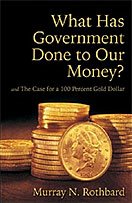

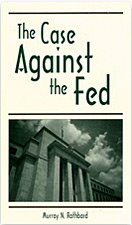

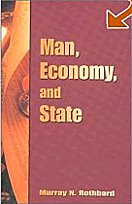

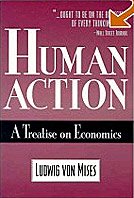
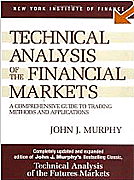





0 ΣΧΟΛΙΑ (COMMENTS):
Post a Comment
<< Home